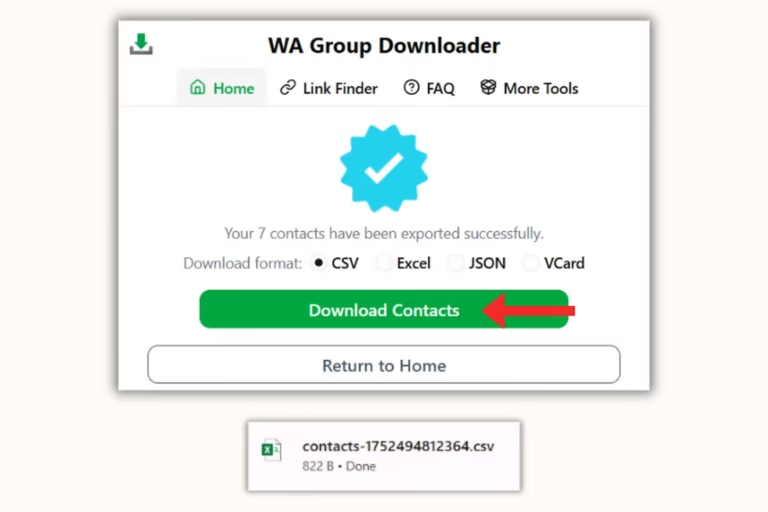Why 24ot1jxa Harmful Threat Behind This Stealthy Malware
In today’s hyper-connected digital landscape, threats to cybersecurity have become increasingly complex and covert. One such sophisticated threat is a piece of malicious software identified as 24ot1jxa. Though the name appears as a meaningless string, cybersecurity experts are sounding alarms over the devastating potential it carries. This article delves deep into why 24ot1jxa harmful, how it operates, the damage it inflicts, and how individuals and organizations can shield themselves from its stealthy attacks.
What Is 24ot1jxa?
A New Breed of Malware
24ot1jxa is not your average malware. It’s a polymorphic, stealth-based malicious software that continuously modifies its code to avoid detection. Unlike traditional viruses that rely on static code structures, 24ot1jxa evolves dynamically, making it a nightmare for signature-based antivirus tools.
Why Its Name Matters Less Than Its Function
While the term “24ot1jxa” might seem random, its behavior and functionalities are anything but. Its ability to hide in plain sight, adapt, and perform multiple malicious operations makes it one of the most threatening malware strains today.
Why 24ot1jxa Harmful to Systems and Data
1. Massive Data Theft
The core functionality of 24ot1jxa revolves around data theft. Once inside a system, it targets sensitive information such as:
- Personal credentials
- Banking information
- Social Security numbers
- Confidential business documents
This data is then exfiltrated to remote command-and-control servers managed by cybercriminals, leading to identity theft, financial fraud, and even corporate espionage.
2. Degradation of System Performance
24ot1jxa silently hijacks system resources like CPU, memory, and bandwidth. Users may experience:
- Frequent system crashes
- Sluggish performance
- Unresponsive applications
All these symptoms make normal usage nearly impossible, reducing both productivity and system lifespan.
3. Remote System Control
This malware often includes Remote Access Trojan (RAT) capabilities. It allows attackers to:
- Monitor user activity
- Modify system settings
- Execute commands remotely
- Install other forms of malware
- Control webcams and microphones
Such control opens the door for espionage and further exploitation.
4. Network Infiltration
One infected device can quickly lead to a compromised network. 24ot1jxa uses techniques such as:
- Lateral movement
- Credential dumping
- Exploiting network vulnerabilities
These techniques help it propagate to other systems, making it particularly dangerous for businesses and institutions.
5. Evasion from Security Systems
Thanks to its polymorphic engine, 24ot1jxa constantly alters its code structure. This allows it to:
- Bypass antivirus programs
- Remain undetected by firewalls
- Disable security updates and logs
This evasion capability ensures it can linger in systems for months, if not longer, without being detected.
How 24ot1jxa Spreads
Phishing Emails
One of the most common entry points for 24ot1jxa is phishing emails. Users are tricked into:
- Clicking malicious links
- Downloading infected attachments
- Providing personal credentials
Drive-by Downloads
Visiting compromised websites can lead to automatic malware installation without the user’s knowledge. This is often done through:
- Exploited browser vulnerabilities
- Malicious JavaScript code
Software Bundling
Malware authors often disguise 24ot1jxa within free software or cracked applications. Unsuspecting users install these packages, unknowingly infecting their devices.
Removable Media
Infected USB drives or external hard disks can carry 24ot1jxa from one system to another, especially in offline environments.

Who Is at Risk?
Small to Medium-Sized Businesses (SMBs)
SMBs often lack robust cybersecurity infrastructure, making them ideal targets for malware like 24ot1jxa.
Remote Workers
The rise of remote work has led to relaxed security postures. Home networks and personal devices are more vulnerable.
High-Profile Individuals
Politicians, CEOs, and celebrities may be targeted for espionage, financial gain, or blackmail.
Average Users
Even non-tech-savvy individuals store valuable personal information on their devices, making them prime targets.
Signs Your Device Might Be Infected
Performance Issues
- Sudden slowdowns
- Frequent crashes
- Unexplained restarts
Unusual Activity
- New applications appearing without installation
- Files disappearing or becoming corrupted
- Unusual data usage
Security Warnings
- Antivirus disabled
- Inability to install updates
- Strange firewall or system alerts
How to Remove 24ot1jxa Malware
Step 1: Disconnect from the Internet
Immediately cut off the device’s connection to prevent data transmission and further infections.
Step 2: Enter Safe Mode
Booting in Safe Mode helps isolate the malware by running only essential processes.
Step 3: Use Malware Removal Tools
Deploy advanced tools such as:
- Malwarebytes
- Norton Power Eraser
- HitmanPro
Step 4: Run Full System Scans
Use a reputable antivirus program to conduct a thorough scan of all files and directories.
Step 5: Change All Passwords
Use a clean device to change passwords for:
- Emails
- Bank accounts
- Social media
Step 6: Reinstall Operating System (if necessary)
For persistent infections, a full wipe and reinstallation may be required.
How to Protect Yourself from 24ot1jxa
Keep Software Updated
Security patches are essential. Regularly update:
- Operating system
- Browsers
- Antivirus software
Install Trusted Security Software
Use comprehensive security solutions that include:
- Real-time scanning
- Firewall protection
- Behavioral analysis
Enable Firewalls
Both software and hardware firewalls help block unauthorized access.
Use Multi-Factor Authentication (MFA)
Adding a second layer of authentication significantly enhances account security.
Conduct Security Training
Educate employees and users about:
- Phishing attacks
- Safe browsing habits
- Importance of updates
Regular Backups
Maintain encrypted, offline backups of essential data. This ensures recovery even in the event of data corruption.
Pros and Cons of 24ot1jxa
Pros of 24ot1jxa (From a Cybercriminal’s Perspective)
⚠️ Note: These are not actual benefits for end-users. They highlight why 24ot1jxa is favored among hackers and cybercriminals.
1. Polymorphic Capabilities
24ot1jxa can change its code structure constantly, allowing it to avoid traditional detection methods. This adaptability increases its success rate in infecting systems and remaining undetected for long periods.
2. Remote Access Trojan (RAT) Features
The malware gives attackers full remote access to infected systems. They can view files, monitor user activity, and deploy further malware, expanding their control without needing physical access.
3. Network Propagation
Unlike isolated viruses, 24ot1jxa can spread laterally across networks. This means a single infection can compromise entire organizations, making it very effective for large-scale attacks.
4. Multi-Device Infiltration
While it primarily targets desktop systems, variations of 24ot1jxa have shown adaptability in affecting mobile devices and IoT hardware, giving attackers a broader attack surface.
5. Stealth Operations
Its ability to disable security tools and suppress system logs makes it extremely stealthy. The malware operates in the background without alerting the user or standard antivirus programs.
Cons of 24ot1jxa (From a Victim’s Perspective)
⚠️ This is where the real dangers emerge—24ot1jxa is highly damaging to both individuals and organizations.
1. Sensitive Data Theft
24ot1jxa is designed to steal personal data like banking details, passwords, and personal documents. This leads to identity theft, financial loss, and blackmail in some cases.
2. System Performance Degradation
The malware consumes CPU, RAM, and disk bandwidth, leading to slow performance, overheating, and system instability, which can disrupt both personal and professional tasks.
3. Invasion of Privacy
Its remote access features allow attackers to turn on webcams, microphones, or screen monitors. This leads to a serious breach of privacy and can be used for cyberstalking or extortion.
4. High Recovery Costs
Once infected, recovering from 24ot1jxa often involves expert cybersecurity intervention, costly hardware replacement, and lost productivity—especially in business environments.
5. Permanent Data Loss
In severe cases, the malware can corrupt or encrypt data beyond recovery. Without secure backups, victims may lose years of personal or organizational files permanently.
6. Spread to Other Devices
If not quarantined quickly, the malware can compromise other devices on the same network, turning one infected machine into a hub for a larger cyber-attack.
Future Implications of 24ot1jxa
Increased Sophistication
Expect future variants of 24ot1jxa to incorporate:
- AI-driven decision-making
- Ransomware capabilities
- Advanced rootkits
Global Impact
Given its network infiltration capabilities, 24ot1jxa could affect:
- National infrastructures
- Financial institutions
- Healthcare systems
Legal and Regulatory Concerns
Organizations failing to prevent such attacks may face:
- GDPR fines
- Loss of customer trust
- Legal action from affected parties
Frequently Asked Questions (FAQs)
Q1. Why 24ot1jxa harmful even with antivirus installed?
Its polymorphic nature allows it to evade signature-based detection, making most traditional antivirus tools ineffective.
Q2. Can 24ot1jxa be removed completely?
Yes, but removal can be complex and may require professional tools or full system reinstallation.
Q3. Is it possible to prevent 24ot1jxa infection?
Absolutely. Regular software updates, strong security practices, and cautious user behavior can prevent infections.
Q4. How fast can 24ot1jxa spread in a network?
It can spread almost instantly in poorly secured networks, making timely detection and isolation crucial.
Q5. Can mobile devices be affected by 24ot1jxa?
While primarily targeting desktops, mobile variants could exist, especially affecting Android devices through rogue apps.
Conclusion
Understanding why 24ot1jxa harmful is crucial in an era where cybersecurity threats are evolving faster than defenses. This malware doesn’t just infect systems; it infiltrates networks, steals critical data, degrades performance, and leaves systems vulnerable to further attacks. Its polymorphic nature makes detection and removal a challenge, but not an impossibility. Through vigilance, strong security protocols, and continuous education, individuals and organizations can defend against even the most stealthy threats.
Stay alert, stay secure—because when it comes to malware like 24ot1jxa, ignorance is not bliss, it’s a vulnerability.
Also Read: PedroVazPaulo Wealth Investment Roadmap to Financial Freedom






